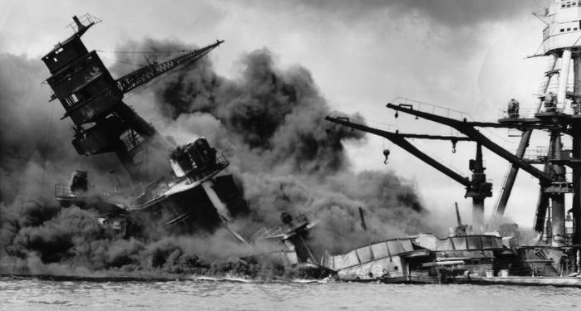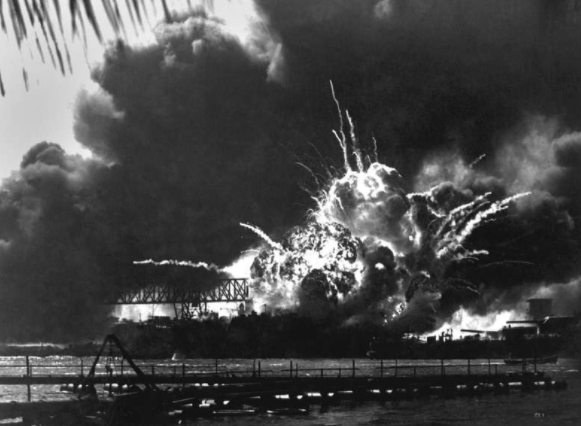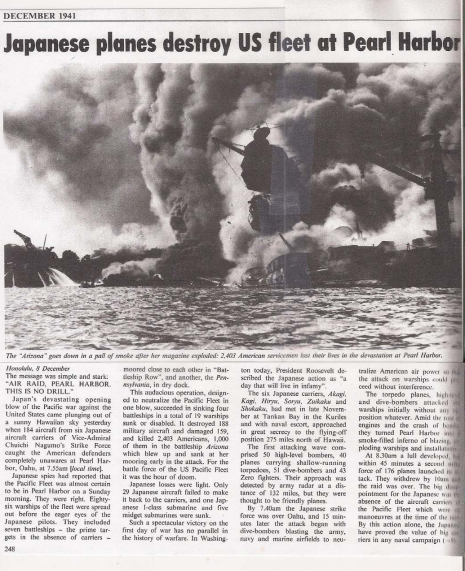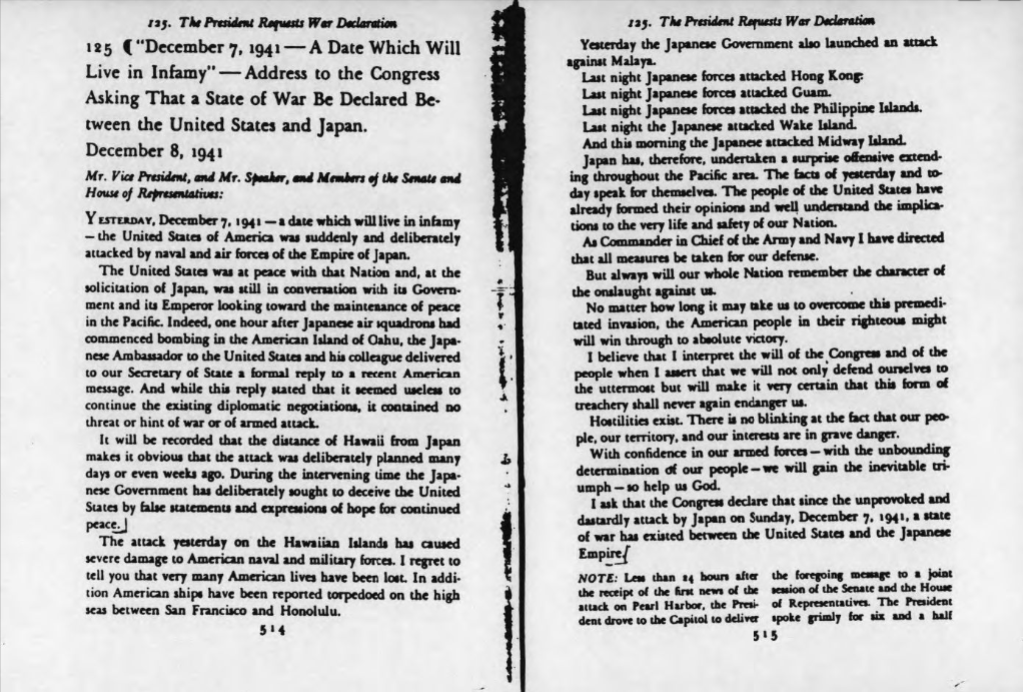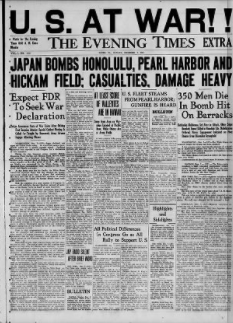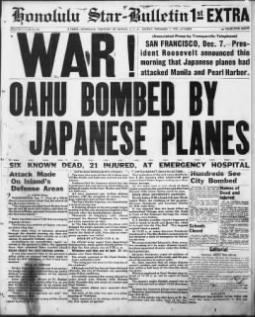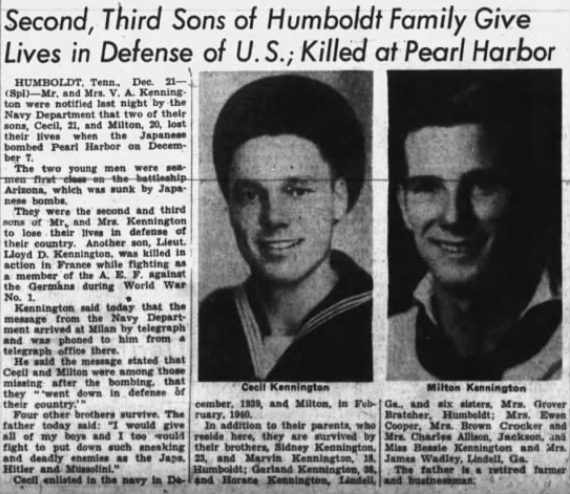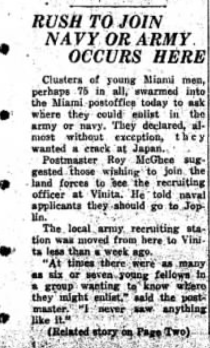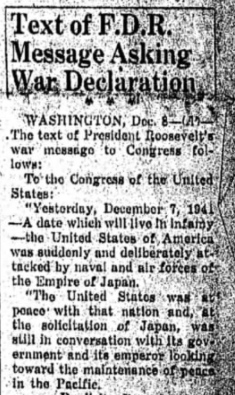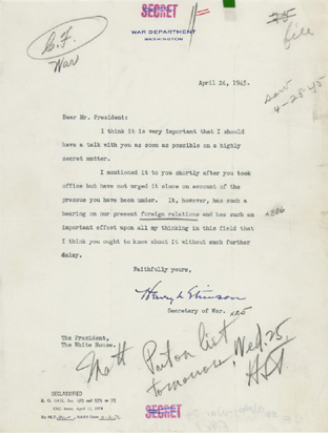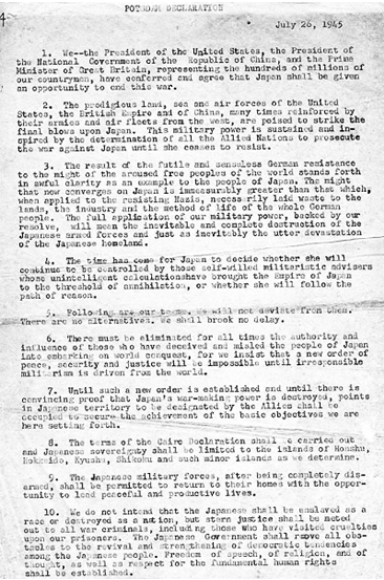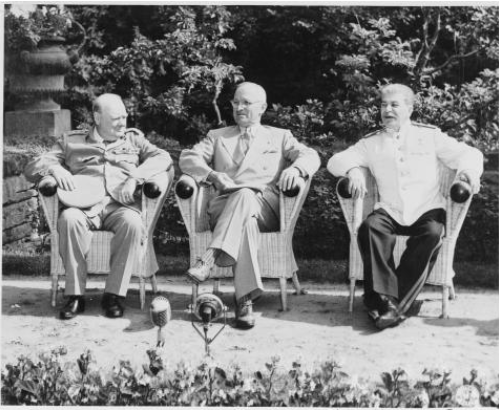"(1) We, the President of the United States, the President of the National Government of the Republic of China and the Prime Minister of Great Britain, representing the hundreds of millions of our countrymen, have conferred and agree that Japan shall be given an opportunity to end this war.
(2) The prodigious land, sea and air forces of the United States, the British Empire and of China, many times reinforced by their armies and air fleets from the West are poised to strike the final blows upon Japan. This military power is sustained and inspired by the determination of all Allied nations to prosecute the war against Japan until she ceases to resist.
(3) The result of the futile and senseless German resistance to the might of the aroused free peoples of the world stands forth in awful clarity as an example to the people of Japan. The might that now converges on Japan is immeasurably greater than that which, when applied to the resisting Nazis, necessarily laid waste to the lands, the industry and the way of life of the whole German people. The full application of our military power, backed by our resolve, will mean the inevitable and complete destruction of the Japanese armed forces and just as inevitably the utter devastation of the Japanese homeland.
(4) The time has come for Japan to decide whether she will continue to be controlled by those self-willed militaristic advisers whose unintelligent calculations have brought the Empire of Japan to the threshold of annihilation, or whether she will follow the path of reason.
(5) Following are our terms. We will not deviate from them. There are no alternatives. We shall not delay.
(6) There must be eliminated for perpetuity, the authority and influence of those who have deceived and misled the people of Japan into embarking on world conquest – for we insist that a new order of peace, security and justice will be impossible until irresponsible militarism is driven from the world.
(7) Until such a new order is established and until convincing proof that Japan's war-making power is destroyed, points in Japanese territory to be designated by the Allies shall be occupied to secure the achievement of the basic objectives we are here setting forth.
(8) The terms of the Cairo Declaration shall be carried out and Japanese sovereignty shall be limited to the islands of Honshu, Hokkaido, Kyushu, Shikoku and such minor islands as we determine.
(9) Japanese military forces, after being completely disarmed, shall be permitted to return to their homes with the opportunity to lead peaceful and productive lives.
(10) We do not intend that the Japanese shall be enslaved as a race or destroyed as a nation, but stern justice shall be meted out to all war criminals, including those who have visited cruelties upon our prisoners. The Japanese government shall remove all obstacles to the revival and strengthening of democratic tendencies among the Japanese people. Freedom of speech, of religion, and of thought, as well as respect for the fundamental human rights shall be established.
(11) Japan shall be permitted to maintain such industries as will sustain her economy and permit the exaction of just reparations for war. To this end, access to, as distinguished from control, of raw materials shall be permitted. Eventual Japanese participation in world trade relations shall be permitted.
(12) Occupying forces of the Allies shall be withdrawn from Japan as soon as these objectives have been accomplished and there has been established, in accordance with the freely expressed will of the Japanese people, a peacefully inclined and responsible government.
(13) We call upon the Government of Japan to proclaim now the unconditional surrender of all Japanese armed forces, and to provide proper and adequate assurances of their good faith in such action. The alternative for Japan is prompt and utter destruction"
